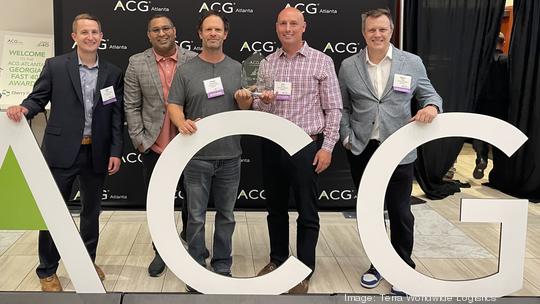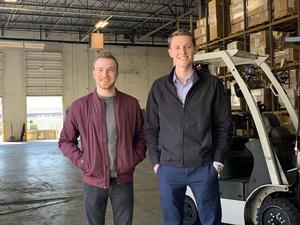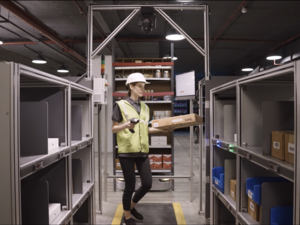
In another sign of the logistics boom, startup Terra Worldwide Logistics is on the verge of becoming Atlanta’s latest unicorn, according to a report from a national business publication.
Bloomberg reported Aug. 1 the company is working with a financial adviser on a sale that could value it around $1 billion. A day after that report, Terra Worldwide told the market via a news release that it had surpassed $1 billion in revenue over the past year.
It did not confirm it was being shopped.
“We’re not trying to hand off the keys,” said Devon Wijesinghe, Terra Worldwide Logistics president and chief transformation officer. “We’re looking for capital to expand, as we see a huge market opportunity.”
Looking for more capital reflects the Terra Worldwide's strategy to buy existing companies to expand its logistics services. Since it was founded in 2019, Terra Worldwide has acquired American Global Logistics LLC, freight companies KCH Transportation and Connect Global Logistics, and Amalie Trade Compliance Consulting LLC.
Terra was founded by Jim Briles, former CEO of American Global Logistics, one of Atlanta Business Chronicle's fastest-growing private companies in 2016. Briles sold AGA and started Terra three years later.
It has grown exponentially, as the pandemic made demand for supply chain innovation soar. It has gone from approximately 100 to 350 employees, from 100 to 1,000 customers and from under $200 million to its recent mark of $1 billion in annual revenue. Terra’s customers include around 40% of the top 50 U.S. importers, according to the company. It declined to identify them.
E-commerce sales in the U.S. totaled $231.4 billion in the first quarter of this year, a 23.5% increase from $187.3 billion in the last quarter of 2019 before the pandemic, according to the U.S Department of Commerce. Investment into supply chain innovation also spiked as supply chain backlogs led to inflation. Earlier this year, Atlanta robotics company GreyOrange raised $110 million and supply chain company Stord raised $120 million.
Atlanta, known as a physical distribution hub with a burgeoning tech ecosystem, is also seen as a growing hub for supply chain startups.
Wijesinghe said the company aims to expand its software platform, using AI that predicts trends in the industry so its customers can grow. Sales volume could double in the next 12 months, he said.






